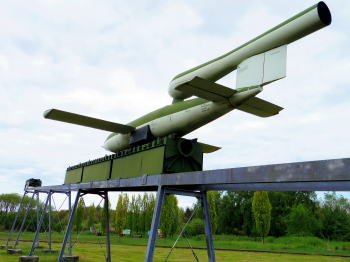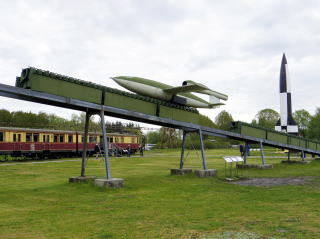
ベルリン中央駅から、Zussowチュッソウ駅、ここから乗換えてZinnowitzツィノヴィッツ駅に行き、さらに乗り換えて終着駅のPeenemundeペーネミュンデ駅まで、約4時間かけて、V2ロケットの実験基地跡を訪ねた。
現存するのは、発電所と変電所跡及び博物館内(発電所内)のロケットの残骸だけである。また、フォン・ブラウン博士や、ここでの研究がアメリカNASAの月ロケット開発に役立ったことが分かる展示がある。
外には、V1・V2ロケットの実物大模型(実物はミュンヘンの「ドイツ博物館」にある)や列車、石炭を運んだベルトコンベアの建物があり、当時の雰囲気は味わえる。
ドイツ北西に有る二番目に大きな島、ウゼドム島、施設があるだけの地域で、今は観光客が来るので、隣接する港には軍艦のミュージアムとソ連製のU461潜水艦が係留されており、艦内を見学できる。
From 1936 to 1945, the research stations in Peenemünde formed the largest
armaments centre in Europe. Over an area of 25km², up to 12,000 people
worked simultaneously on guided weapons, most famously the world’s first
cruise missiles and the first ever functioning large-scale rockets. Both
were designed as a weapon of terror against the civil population, made
mostly by forced labourers and from 1944 they began to be used in the Second
World War as “Vergeltungswaffen” (V-weapons).
The Peenemünde Historical
Technical Museum reconstructs the history of the creation and use of these
weapons. The exhibitions document who worked in Peenemünde, how the people
lived and why the enormously elaborate weaponry projects were carried out.
ペーネミュンデ博物館
The Peenemünde Historical Technical Museum https://museum-peenemuende.de/?lang=en

2019.5.18

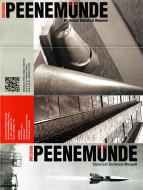
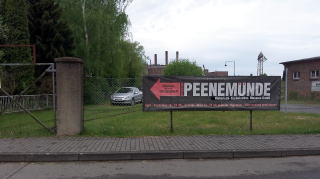
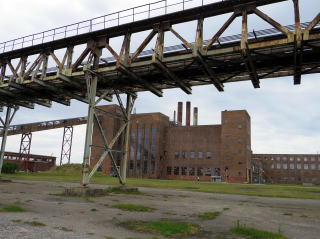
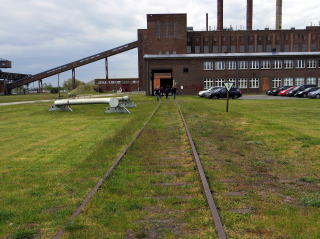


変電所跡

